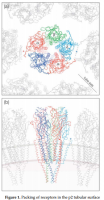MB50
Member
Although I love coffee/caffeine, I notice that I am much more capable of handling stress without daily consumption above 50mg. I don't think the changes in baseline cortisol are necessarily bad once tolerance is developed with chronic caffeine consumption, but what does bother me is studies showing amplified ACTH and cortisol responses to mental stress with caffeine. Of course, the problem would be the underlying stress, but this is almost unavoidable in real life and I am more focused on becoming more capable of handling this stress. Therefore, I am thinking of keeping caffeine consumption under 40mg/day for a while. I am wondering if anybody has any insight into how long receptor changes will take place following caffeine cessation?
I have seen the general consensus is most withdrawal symptoms are over after a maximum of 9 days, but because anecdotal reports suggest that people experience changes further than 9 days, it seems like there is still some change in adenosine, dopamine, serotonin, and acetylcholine receptors. I have seen no direct evidence saying this is the case, but does anybody have any idea how long receptor changes would occur for following such a change in caffeine consumption? Would it be at most weeks, or months?
Thanks for your input as always.
I have seen the general consensus is most withdrawal symptoms are over after a maximum of 9 days, but because anecdotal reports suggest that people experience changes further than 9 days, it seems like there is still some change in adenosine, dopamine, serotonin, and acetylcholine receptors. I have seen no direct evidence saying this is the case, but does anybody have any idea how long receptor changes would occur for following such a change in caffeine consumption? Would it be at most weeks, or months?
Thanks for your input as always.

